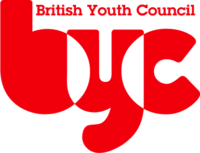Creating policy on the important issues facing young Europeans
Last month, from 13th May to 14th May, I joined my fellow European Youth Forum delegates virtually for my first ever Council of Members Meeting (COMEM). While I would have loved to join the rest of my colleagues in Brussels and attend in person, I was unable to do due to having tested positive for
- Published in Blogs, UK Young Ambassadors
My first European Youth Forum Council of Members meeting as a UK Young Ambassador
In October 2020, I was elected as a UK Young Ambassador and Representative of the British Youth Council at the European Youth Forum. Not quite the news I was expecting during my first weeks at university, but I was delighted to be elected. What is the European Youth Forum? The European Youth Forum is the
- Published in Blogs
British Youth Council calls on government to replace lost EU funding
The British Youth Council are calling on the UK government to announce its plans to replace significant funding lost since the UK’s exit from the EU. Following the ratification of the new trading and cooperation agreement with the European Union, organisations in the UK have lost access to Erasmus Plus. The youth-led charity is calling
Reflections on being UK Young Ambassador to EU Youth Dialogue Report
Coming to the end of my role as UK Young Ambassador for EU Youth Dialogue, I have begun to reflect on journey. EU Youth Dialogue allows young people to interact with policy makers at an European level. The 7th Cycle of EU Youth Dialogue had three main themes. These were based on three EU youth
- Published in Blogs, UK Young Ambassadors
British Youth Council urge Government to consult young people on Brexit
The British Youth Council are urging the UK Government to address the concerns of young people in any further Brexit negotiations. The youth-led charity has repeatedly highlighted the importance of including young people in decisions that will affect their future. The importance of maintaining funding opportunities, such as the Erasmus+ programme, remains a priority for
Representing young people in Amiens, France
In November Lucia and I travelled to Amiens in France to represent the British Youth Council at the Council of Members Extraordinary Meeting (COMEM). It was an opportunity to come together with all the members of the European Youth Forum to discuss policy and campaigns. On Thursday evening, Lucia went to the announcement of the
- Published in Blogs, UK Young Ambassadors
Last words from outgoing UK Young Ambassador to the European Youth Forum
This April I visited Brussels for my fifth and final assembly meeting as the UK Young Ambassador to the European Youth Forum, which I attended alongside Lucia Jones. At this meeting, which brings together around 150 young representatives from across Europe, we usually discuss and pass resolutions on continent-wide issues as well as elect people
- Published in Blogs
Young people should have a say on Brexit
The British Youth Council are calling on the Government and prominent campaigners to address the concerns of young people in any new Brexit negotiations or plans. The youth-led charity feels the voices and wishes of young people, in particular, have not reflected in Brexit negotiations up to this point. Therefore, we believe the best way









